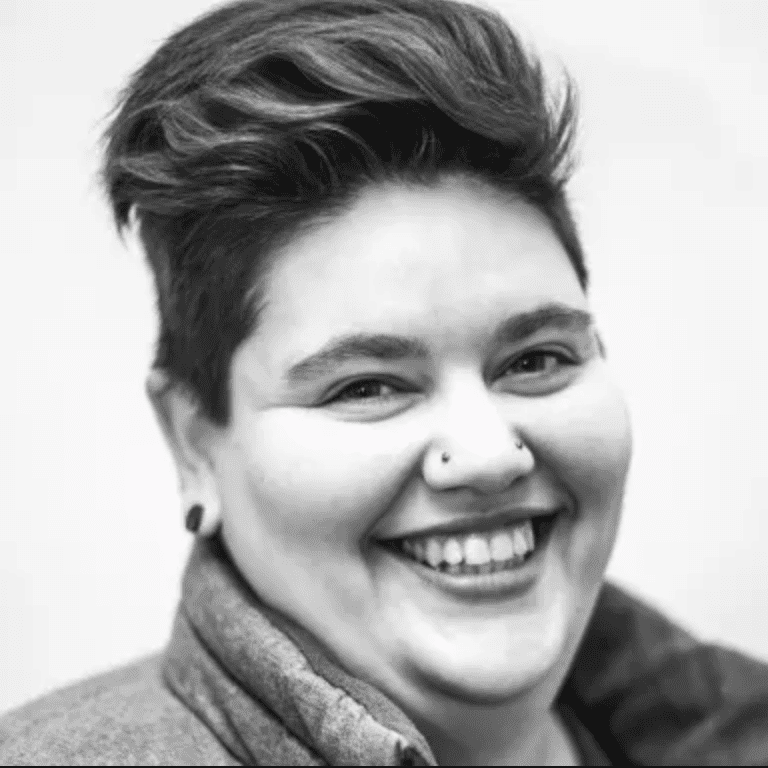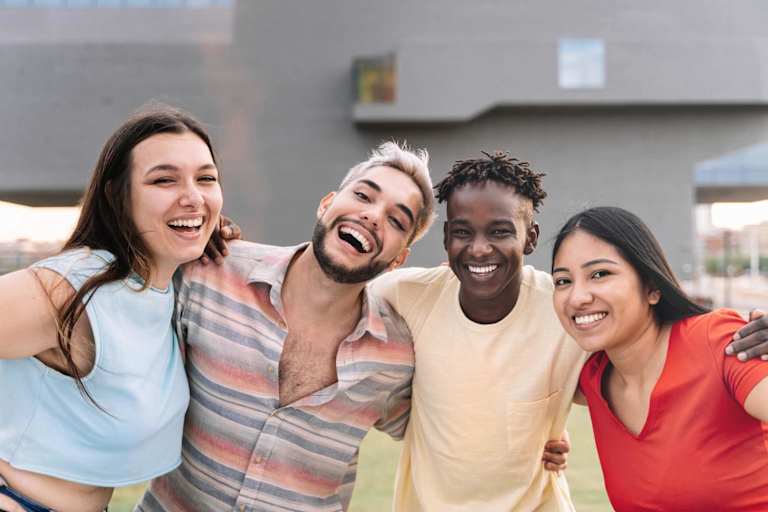Measuring the Political Attitudes of LGBTQ Students
- In recent years, the number of LGBTQ elected officials has increased.
- Voting habits of LGBTQ college students indicate they’re politically engaged.
- Students have also participated in political activity outside traditional channels.
- LGBTQ students are impacted by anti-trans legislation and loan forgiveness policies.
The personal is political, and LGBTQ communities are acutely aware of how their personal lives can be politicized. For LGBTQ college students, having their identities be a political focal point can be both motivating and disheartening.
LGBTQ communities are an underrepresented and marginalized constituency when it comes to political engagement. The census, a tool used by government officials to determine funding allocations for things like public housing and other community services, does not ask about gender identity and sexual orientation. This means that LGBTQ folk are not being fully counted through the census process.
According to a recent survey from College Pulse, 64% of LGBTQ students say they don’t feel like either major political party represents their interests, compared to 55% of straight students. With a history of being excluded from political spheres, LGBTQ college students are justified in being skeptical of existing systems.
Voting Habits of LGBTQ College Students
Data focused on LGBTQ college students’ voting behavior is not as easily available as data about voting habits among LGBTQ and college student populations separately. Increased attention to LGBTQ college students’ political engagement in future election seasons could be valuable in determining the exact habits of this community.
However, the overall theme from reports in the last decade suggest LGBTQ young people recognize themselves as major stakeholders in political actions.
A 2021 College Pulse survey found that 64% of LGBTQ students don’t feel like either major political party represents their interests.
A 2014 report on LGBT political participation found that while the exact percentages vary from year to year, LGBT people are generally just as likely to vote as the general population, based on data from a 2013 Pew Research Center survey. Another study referenced in the report found that LGBT individuals may be more engaged than the general population in some political activities (such as contacting a politician and attending a political rally).
Although the report does not break down political activity by age, it does state that 30% of LGBT respondents in the 2013 Pew Research Center poll were approximately college-student aged (18-29). It is also worth noting that another poll identified the LGB population as having a larger proportion of respondents in the 18-34 age bracket compared to the general population.
A 2020 report from the Williams Institute also found that LGBT voters skewed younger than non-LGBT voters. The report states that 47% of LGBT voters are ages 18-34 compared to only 21% of non-LGBT voters.
LGBTQ Political Representation Matters
In 2018, the Victory Institute documented a historical number of LGBTQ candidates running for political office in the U.S. and called it a “Rainbow Wave.” This trend has continued into following years and the surge of LGBTQ elected officials has greatly impacted the political landscape.
Furthermore, the Victory Institute’s Out for America map indicates there are 986 LGBTQ elected officials nationwide, representing all levels of government. This figure includes 189 LGBTQ state legislators. According to the organization’s data, there would need to be a continued increase of LGBTQ state legislators in upcoming elections in order to achieve equitable representation.
The Victory Institute counts 986 LGBTQ elected officials nationwide.
The largest count of LGBTQ elected officials is in local politics (601), such as roles on city councils and boards of trustees. With growing recognition that leveraging local government is important in social justice efforts, the uptick in LGBTQ representation at the local level has potential to influence political change for LGBTQ communities.
LGBTQ college students are getting engaged in campus government, too. For instance, in 2019 students at the University of Missouri Kansas City elected their first Black and openly gay student body president. Financial and policy recommendations made by student governments can have major impacts on LGBTQ college students and employees.
The overall trend of increased LGBTQ political representation could have major benefits for historically excluded communities. Having someone at these decision-making tables with similar life experiences could also increase political engagement and trust within LQBTQ+ communities.
Issues Impacting LGBTQ Students
A poll conducted by GLAAD found that 78% of LGBTQ adults positively viewed Biden’s performance during his first 100 days in office. Respondents specifically noted satisfaction with the administration’s efforts advancing LGBTQ equality, responding to COVID-19, advancing racial equality, and prioritizing LGBTQ inclusion in hiring and political appointments.
Early signs that the federal administration is being attentive to LGBTQ issues could instill greater hope in younger LGBTQ folks. However, more remains to be done to address LGBTQ student needs, particularly in areas like combating anti-trans legislation, easing student loan debt, and preserving the right to protest.
Anti-Trans Legislation
An alarming number of anti-trans bills have been introduced in the last year, specifically targeting trans, nonbinary, and intersex young people. Meanwhile, substantive policy measures eliminating existing barriers to healthcare, housing, and job prospects for trans, nonbinary, and intersex people have not risen to the same volume as these malicious proposals.
For LGBTQ college students, attending a school in a state that proposes or passes legislation aimed at inhibiting the lives of trans, nonbinary, and intersex people can be daunting. College administrators faced with choices about how to comply with state law could send messages to trans, nonbinary, and intersex students that they are not safe or welcome on campus.
Student Loan Forgiveness
A 2018 survey found that LGBTQ respondents had an average of $16,000 more student loan debt than the average student loan debt in the general population. Factors such as homophobic families not extending financial support, discriminatory loan and hiring practices, and higher housing costs during and after college impact LGBTQ students’ ablility to borrow and pay back student loans.
With student loan debt reaching unmanageable levels in addition to the financial impacts of the COVID-19 pandemic, LGBTQ students experience immense barriers to accumulating wealth and even affording basic needs like housing, food, and healthcare. Student loan forgiveness would have significant material advantages for LGBTQ communities but has had waning support from key decision-makers.
Policies Inhibiting Protest
Protest is a key action for demonstrating dismay and outrage. In the last year especially, communities have mobilized around issues including racial justice, climate change, and workers’ rights.
As people nationwide have participated in various forms of protest, some legislators have introduced policies that restrict and penalize protesting. As municipalities propose laws that inhibit people’s right to protest, college campuses could become microcosms where student protest is met with increased resistance.
Progress for LGBTQ Students Beyond Politics
Although many issues impacting LGBTQ populations need legislative efforts, the past year has also seen a rise in political activity beyond traditional channels.
LGBTQ students are disproportionately represented among youth who’ve experienced major housing and financial disruptions due to the COVID-19 pandemic. Throughout the crisis, college students have sprung into action to establish mutual aid networks to help folks access food, money, and housing support. Mutual aid efforts help communities address immediate needs by working directly with other community members rather than through established political systems.
Feature Image: Mixmike / E+ / Getty Images
Explore More College Resources

College Experience Guide for LGBTQ+ Students
Explore common experiences and challenges of LGBTQ+ college students and learn how you can ensure your campus supports and affirms LGBTQ+ students.

by R.B. Brooks
Updated June 5, 2025



